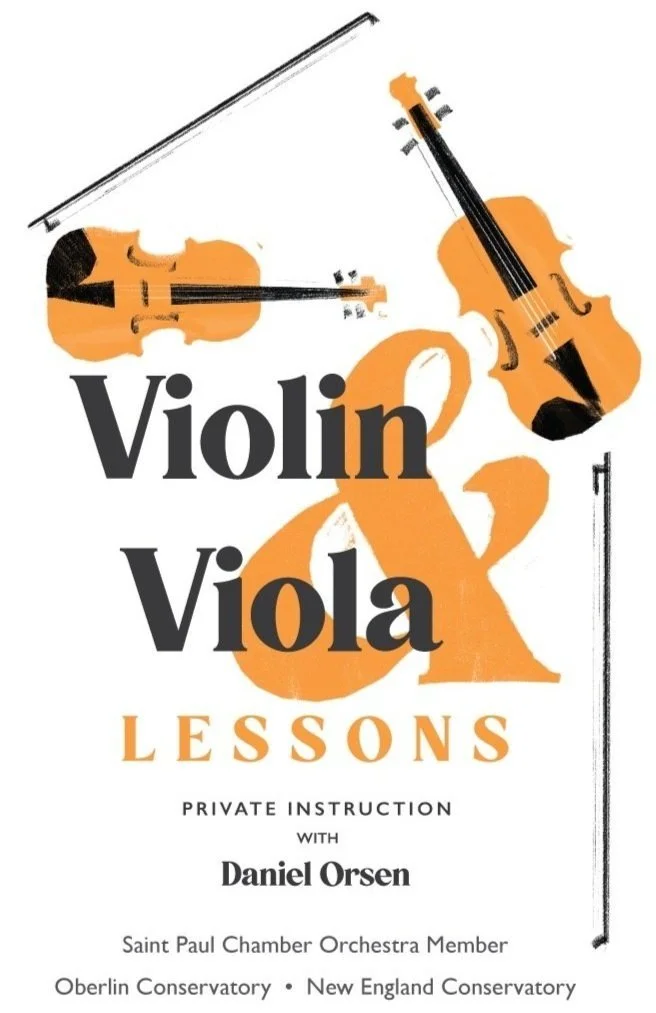About my teaching…
I have been fortunate many of our era’s great violin and viola pedagogues in private lessons, masterclasses, and chamber music coachings, including; Itzhak Perlman, Kim Kashkashian, Peter Slowik, Heidi Castleman, Donald Weilerstein, and Merry Peckham to name a few. My most formative teaching relationships have been with Marylène Gingras-Roy (Pittsburgh Symphony Orchestra), Peter Slowik (Oberlin Conservatory), and Kim Kashkashian (New England Conservatory).
Peter Slowik and Kim Kashkashian studied respectively with Heidi Castleman and Karen Tuttle, the two “grandmothers” of American viola playing. Nearly every professional violist who has studied at an American conservatory can trace their teaching lineage back to them and their distinctive pedagogical styles. I am fortunate to have been immersed in both streams of pedagogy.
Karen Tuttle and Heidi Castleman themselves can be traced further back to William Primrose, Dorothy Delay, Ivan Galamian, Eugène Ysaÿe, Henryk Wienawski, Leopold Auer, and Joseph Joachim (who premiered both the Beethoven and Brahms violin concertos!).
I received my Bachelor of Music in Viola Performance from Oberlin Conservatory and Masters of Music in Viola Performance from the New England Conservatory of Music. I am currently a member of the Saint Paul Chamber Orchestra.
Pedagogical method: “Traditional,” not Suzuki. I did not grow up with the Suzuki system nor had Suzuki teacher training, but I have taken on many students who were in the middle of a Suzuki book and kept working through it with them. There is a tremendous amount of merit and good sense to the Suzuki system, but as with any teaching approach, it is dependent upon a good teacher. There are a few series of books I like for beginner and intermediate players, but beyond that students will progress through classics like Wolfhart, Schradiek, Ševčik, Mazas, Kreutzer, Campagnoli, and Flesch, in addition to repertoire.
Teaching philosophy: There are some things about music that cannot be taught. There are others that must be taught, can almost only be learned from a teacher, including; how to play the instrument, how to practice, and guidance through the music world (camps, festivals, youth orchestras, competitions, college auditions). These three are foundational and essential for middle-school or high-school students who are excited about music and want to seriously pursue it.
